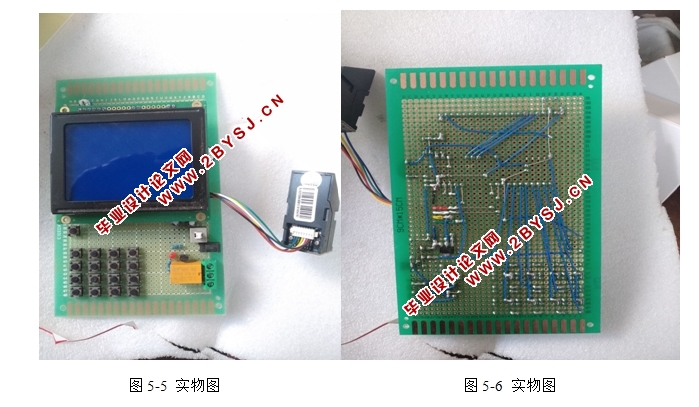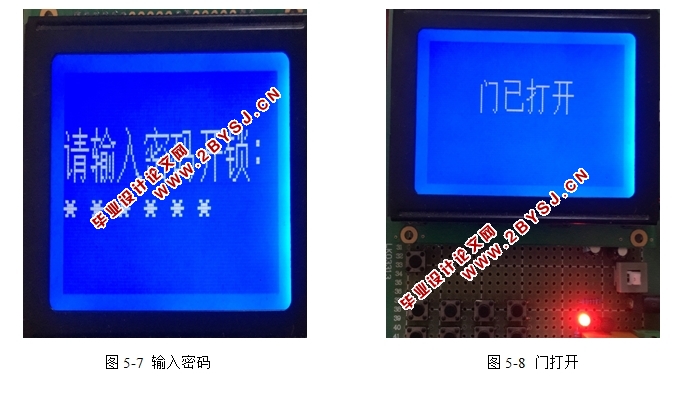基于51单片机指纹电子密码锁设计(附实物图)
无需注册登录,支付后按照提示操作即可获取该资料.
基于51单片机指纹电子密码锁设计(附实物图)(课题说明书,开题报告,中期检查表,论文11000字)
摘 要 基于51单片机的指纹识别电子密码锁的设计不仅突破了造价高昂的局限,更是弥补了传统锁结构简单、容易破解的缺陷。本设计中,应用了Keil单片机软件开发技术对单片机进行C语言编程设计,应用矩阵键盘、蜂鸣器、液晶显示器等器件进行液晶显示电路、报警和LED电路、串口电路的设计。并进行了模拟实验以及实物制作,实物可实现正确的6位密码打开锁的操作、修改密码操作、输入错误三次报警等功能。实验结果也充分证明了设计的科学性与可行性,对电子指纹密码锁的设计和研发具有一定的指导意义。
关键词 单片机; 指纹; 密码锁; 液晶显示
Design of Fingerprint Electronic Code Lock Based on 51 Single Chip Microcomputer
Abstract Because of its high performance-price ratio, single-chip computer is more and more widely used in our electronic field. The design of fingerprint recognition electronic password lock based on 51 single chip computer not only breaks through the limitation of high cost, but also makes up for the shortcomings of simple structure and easy cracking of traditional lock. In this design, Keil MCU software development technology is used to program MCU in C language. Matrix keyboard, buzzer, LCD and other devices are used to design LCD display circuit, alarm and LED circuit, serial circuit. The simulation experiment and physical production are also carried out. The real object can realize the correct operation of opening the lock with 6-bit password, modifying the password operation, and alarming three times for input errors. The experimental results also fully prove the scientificity and feasibility of the design, which has a certain guiding significance for the design and development of electronic fingerprint password lock.
Key words SCM; fingerprint; password lock; LCD display


目 录
摘要及关键词 1
1 绪论 1
1.1 指纹识别的现状和发展 1
1.2 单片机使用的现状及发展 2
1.3 指纹生物识别的原理 2
1.4 指纹生物识别技术 3
2 总体功能介绍 4
3 硬件的介绍与基本设计 4
3.1 单片机的介绍 4
3.2 液晶显示模块 5
3.3 矩形按键模块 5
3.4 指纹模块 8
4 系统软件的设计 8
4.1 系统程序工作分析 8
4.2 串口初始化 9
4.3 主程序流程图 9
4.4 本设计用到的Keil编程 13
5 硬件调试 14
5.1 电路的焊接 14
5.2 程序的烧写 15
5.3 小灯、继电器的调试 16
5.4 液晶的调试 16
5.5 指纹模块、按键的调试 17
5.6 实物图操作流程 18
结论 19
参考文献 19
致谢 21
